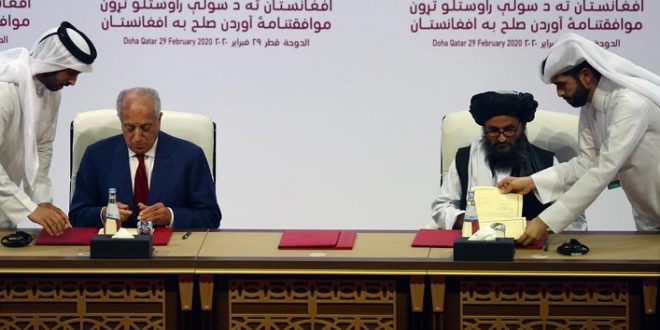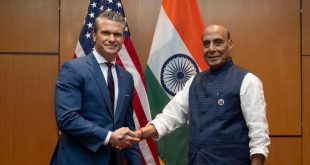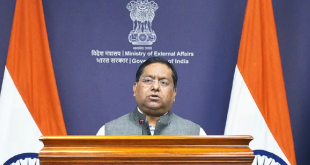A game is being played on the fate of Afghanistan once again, primarily at the hands of key stakeholders and influencers in the country. The US is seemingly backtracking on everything that it purported to uphold and stand for. The history is going to repeat itself because Afghans are not cognizant of the narratives being presented, especially by the Taliban. September 26, 1996, marks the arrival of the Taliban into Kabul and the brutal killing of the Afghan former President Dr. Najibullah. They stress a change to some governance structures and the security apparatus. They use violence and flex military muscles to gain leverage – all draw similarities to the circumstances of the 90s when Afghanistan was pulled to pieces. In a recent interview, the US Special Representative for Afghanistan Peace Process Zalmay Khalilzad further aggrandized the Taliban as the US is giving in to their every demand. He said the Taliban wouldn’t accept a permanent ceasefire until there is a political settlement in Afghanistan. The US in a manner is lobbying and advocating for the requests of the Taliban and is instigating that option for the rebels. This way the country is brazenly but slowly turning against the Afghan government, despite supporting it over the past two decades. But it shouldn’t be so; the US along with the international community should have pressurized the group to agree to a ceasefire. Khalilzad has already reneged on its statement when he said that the US-Taliban agreement (which was signed in February) would be inked on the condition of a truce but that didn’t happen – it’s not even happening when the intra-Afghan talks are ongoing in Doha. The current situation resembles that of the Soviet Union’s withdrawal from Afghanistan when Afghanistan was left isolated and cut off from the rest of the world while Afghanistan’s neighboring countries also did huge treason towards the country by cutting off trade routes and relations. At this juncture, the American and coalition forces’ withdrawal bodes ill for the survival of the current government as the support to the government is being withdrawn with the Taliban coming into the scene. Although the current system enjoys broad-based support from the international community unlike Najib’s era, the negative upshot of a lack of such a cooperation mechanism on the part of the US will lead to a similar situation to that of President Najibullah – if not completely the same – because the Kabul government has been so far frail, perennially corrupt and ineffective due to lack of political consensus. Such a situation doesn’t rule out yet another internecine war occurring as the Taliban have been grandly emboldened and the government weakened. Any miscalculated step on the part of any stakeholder would take us back to square one and thus all of them, especially the Afghan leaders and elites, should learn from the past mistakes and avoid repeating the history yet again; unless they deliberately want to do so.

 Afghanistan Times Latest News and Analysis from Afghanistan and the Region
Afghanistan Times Latest News and Analysis from Afghanistan and the Region



